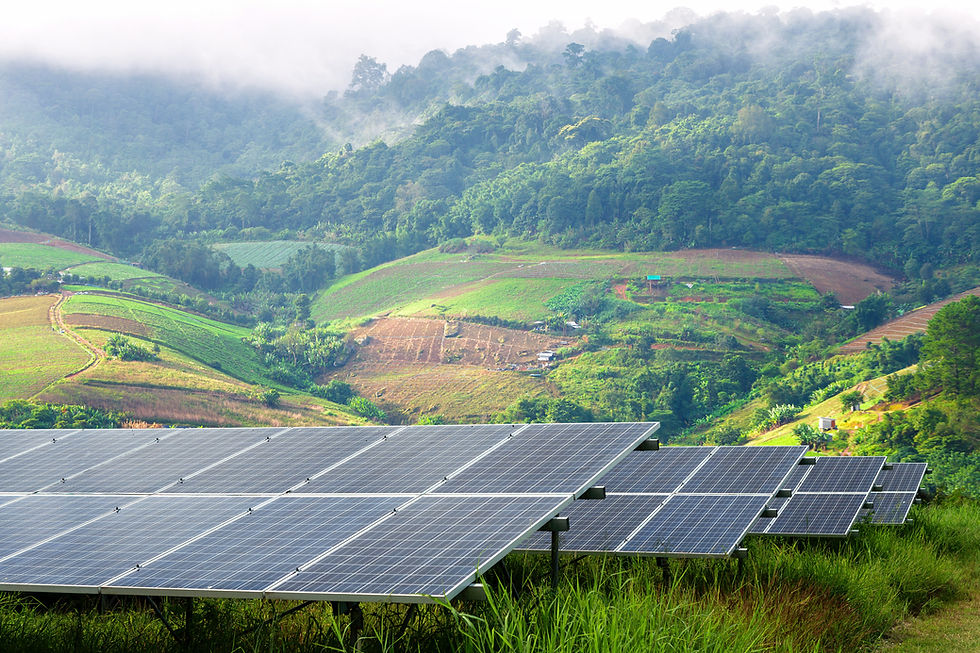Sustainability for Social Justice
- Luke Kandiah

- Oct 27, 2023
- 3 min read
Dr Ross Purves and Emma Newell

Why is Climate Change and Sustainability important to consider as a Student Teacher?
Incorporating climate change and sustainability into education helps prepare students to be responsible global citizens who can actively participate in efforts to mitigate the impacts of climate change and work towards a more sustainable and resilient future.
Global Implications: Climate change is one of the most pressing global challenges of our time. It has far-reaching consequences for ecosystems, economies, and societies. Teaching about climate change and sustainability helps students understand the urgency of addressing this issue and encourages them to become informed and engaged citizens.
Important for a range of subjects: (Not just Geography and History!) Climate change and sustainability are interdisciplinary topics that span science, technology, engineering, mathematics (STEM), social sciences, humanities, and the arts. Teaching these subjects can foster a holistic approach to learning and problem-solving, helping students develop a well-rounded understanding of complex issues.
Contemporary Relevance: Climate change and sustainability are real-world problems that students will encounter throughout their lives. Teaching these topics will equip students with practical knowledge and skills that they can apply in their personal and professional lives and adapt to other issues of social and environmental justice
Environmental Stewardship: Despite us seeing less and less of nature in our urban environments, educating students about sustainability promotes a sense of environmental stewardship and responsibility. It encourages them to make informed choices that reduce their impact on the environment and contribute to a more sustainable future.
Ethical and Moral Considerations: Teaching climate change and sustainability helps students develop a sense of ethical and moral responsibility toward future generations and the planet. It encourages them to consider the consequences of their actions and advocate for ethical and sustainable practices.
Career Opportunities: The growing emphasis on sustainability has created a demand for professionals with expertise in environmental science, renewable energy, green technology, sustainable agriculture, and related fields. Teaching these subjects can prepare students for a wide range of career opportunities. Schools and universities also will have to prepare students for entirely new career pathways around sustainability as we move into a future that requires such jobs to keep our planet healthy.
Action already evidenced to be in place in schools:
Eco day/climate week - integrating sustainability into the classroom
Notices about conserving energy
Eco team with an eco support officer in each form group
Trees being planted
Sustainability and Climate Change: A strategy for the education and children's service systems 2022 - DfE Government plan: Climate education
Net zero
Resilience
A better environment for future generations
New GCSE of Natural History in development for 2025
Carbon literacy training for school personnel
All schools to have a nominated sustainability lead by 2025
It is more difficult to live sustainably if you are from a low income home.
Climate change can be directly linked to income in areas that depend on airports etc for income and job security - Children from these families can be more resistant to ideas of climate change.
Declining Urban biodiversity
Plant Blindness: The inability to see or notice the plants in one's own environment. The inability to recognise the importance of plants in the biosphere and in human affairs.
London's GSI score falls below the minimum standard. Despite a substantial provision of green space, the provision per person remains low and at least 10000 Londoners remains deprived of nearby green space.
National Education Nature Park
A project working with the Natural History Museum, that will hope to increase engagement for students with nature.
Provides support and guidance needed to make change happen.
Application for STs
Creating a culture of outdoor and out of school learning - Not just for science and geography but for all student teachers of all subjects to help create positive effects on school learning environments.
Examples of observation foci from last year on sustainability:
Geography
- International trade in fossil fuels, natural resources and fast fashion
- Living standards vs environmental impacts
Science
- Non-renewable energy sources
- Recycling chemistry
- Population growth
- Biodiversity
Reading skills - Climate activism speech analysis
Citizenship - Pressure groups and greenpeace
Textiles - environmental impacts of different fabrics
Art - Artworks exploring pop culture, mass production and environmental implications.
Extracurricular
Off timetable day on food, biodiversity and waste reduction
School gardening/allotment club

IOE initiative to educate Student Teachers about Climate Change and Sustainability
UCL Centre for Climate Change and Sustainability Education (CCCSE) has launched a new range of free online professional development programmes for teachers.
- Research informed, free professional development to help teachers embed climate change and sustainability into their teaching. - Geography and History
- Other subjects in development








Comments